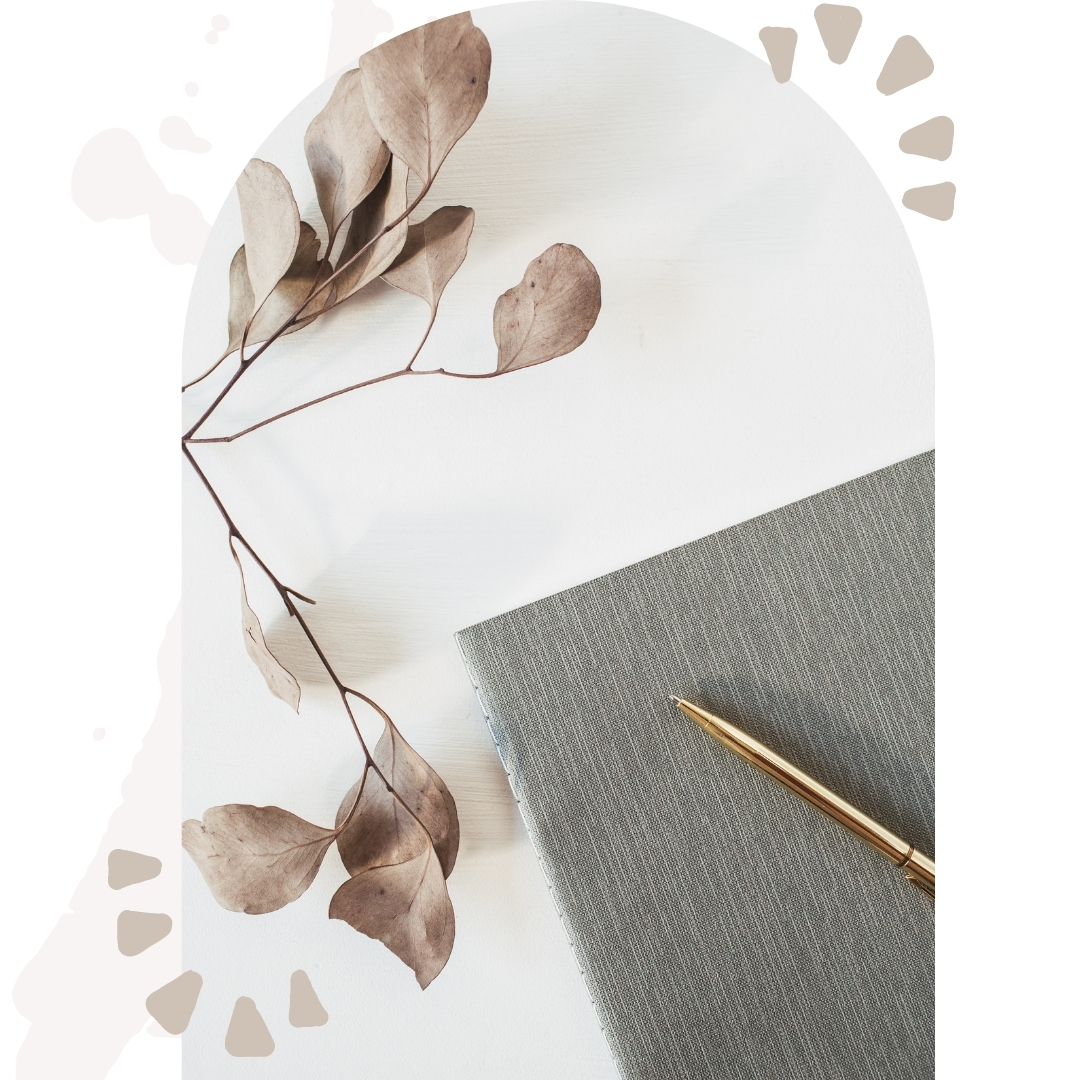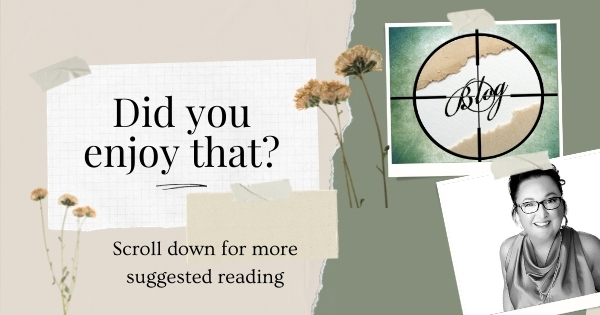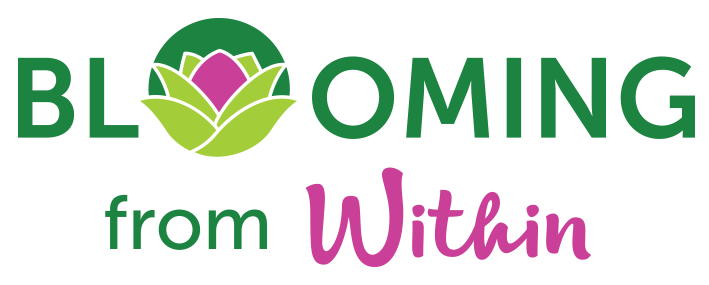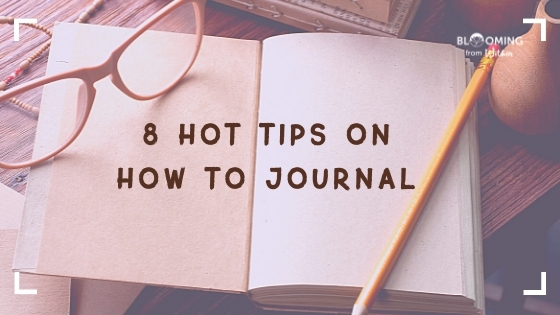8 Tips on How to Express Yourself in a Journal
Bridgette Jones thought she did it when she wrote in her Dear Diary, but all she was really doing was invalidating herself with a list of her daily failures. Whilst those movies were hilariously funny, it always pained me with sadness as I watched her wallow in her stuff.
There is so much positive power to be gained from the art of journaling. It literally gifts you the opportunity to speak your inner truth.
When we utilise our journal properly, we are purging the crap literally out of our subconscious and onto paper. This purging allows us to connect to the emotions of the challenge we are currently facing. Journaling allows the connection to be conscious and defines what we are feeling.
Once the crud emotions are out in the open, we can then examine them and the patterns we run associated with them. This exploration can be a revelation into your subsequent reactive behaviours and provide you with clues to make changes and heal from previous painful experiences.
The hidden benefit of journaling is this, it is like going to an appointment with your talking therapist. You get to bring up all the stuff at your pace. You get to tell the story on those pages without judgement. Best of all you aren’t burdening any of your friends and family with your crap. You are in control.
Therefore journaling is like being your own coach. Journalling can be a fabulous tool to unpack and explore what your dream life might look like. You can use journalling to create the future you want.

Let me begin with a caveat with journalling — if after writing about the issue (person, event or issue) that you don’t feel lighter, this is the time to take quick action. Reach out for help to decipher where you are stuck in your feelings. Seek a different viewpoint on the mountain you probably feel you are climbing.
This reaching out might be with a mate, a workplace counsellor, your trusted GP, a counsellor, a psychologist, or someone like myself who is a kinesiology practitioner. Everyone has their preferred ‘go-to’ person, and that would be the time to reach out after you’ve had the first crack at solving the problem.
Remember this, if you are seeking a practitioner's support, there are only two rules:
- You must connect with the other person with implicit trust
- You should feel some relief or process at the completion of a session.

For me personally, it’s like walking into a dark room (ie the challenge I am experiencing), and granting myself permission to turn on the switch which floods the space with light, illuminating the hidden treasure.

Sometimes when we’ve had our Negative Nancy pants on for a while, it’s very challenging to shine a light on any positive. Sometimes the experiences in our life are just so traumatic or overwhelming that it’s not quite safe enough for us to explore that yet.
Gratitude journaling is a safe place to challenge you to cultivate a new attitude of positivity in your life. You get to document things you appreciate. For some who feel stuck, this can be very challenging so I always suggest start simple.
“I am grateful for waking up today. I am grateful for there being food in my fridge, for the car to transport my family safely from A to B. I’m grateful for the job that I have which enables me to pay my bills. I’m grateful that my current job teaches me lessons of where I’m valued (or not) and inspires me to make changes”.
One of my mentors, Caitlin Grace, keeps her gratitude journal separately to that of her regular journal. This is her sacred space to record and give thanks for all the abundance in her life. For me personally, I like to start with gratitude entries and then explore what has been challenging me.

Your journal may incorporate utilising motivational or inspirational cards. This is where you pull a card from your preferred deck of cards (and there is no limit to what floats your boat here), and write the uplifting quote and what that means to you. You get to explore how you could change a thought or behavioural process to adopt that intention in your life.
I utilise a myriad of card decks by Kyle Gray, Gabriella Bernstein, Angels and Masters etc. I allow my intuition to guide me on where I require insight or wisdom or a prompt from the universe.
The other joyous gift of keeping a separate gratitude journal is that any time you are feeling down and need a boost of positive, you get to read through your happiness entries and lift yourself up.

The style of self-enquiry and reflection journaling enables you to explore facets of daily life and its issues. When we are in the thick of the moment, you may not be able to explore all of your feelings at once. You may not reflect on your behaviour at first glance because you’ve been busy reacting.
Journaling about your living situation, your work, and your relationships is a lovely safe place to explore topical emotions and feelings. Are you right where you want to be to live your dream life? Do you have all the right feels?

Tip #4 Grant Permission to Your Inner Child to Express
So what is our inner child? Popular psychology defines our inner child as an individual’s childlike aspect. This includes what we have learned when we were a child, before puberty. We can perceive the inner child as a semi-independent sub-personality subordinate to the waking conscious mind.
And so now you’re probably wondering how to connect with your inner child? I learnt the following techniques in a Louise Hay “Heal Your Life” workshop:
- Write in your dominant hand, expressing out all the feels or asking a question. Then swap to non-dominant hand to allow the inner child a voice to respond. Often there are no words, but scribble or demonstration of the emotion(s).
2. Write a letter to him or her. The more connected you are with your inner child, the stronger your intuition becomes. Sometimes it’s simply not safe to be able to confront someone who’s done wrong by you. Write them a ‘fuck you’ letter.
3. Say nurturing things(I love you, I hear you, thank you, I’m sorry). Document how easy or difficult it is to speak positively to yourself as a child. Explore whether you feel deserving and worthy.
4. Look at photos of yourself as a child. Document the emotions associated with those memories.
5. Think and write about what you loved doing when you were young. Alternatively, capture what wasn’t great about your childhood and how you have now made changes as an adult.
6. Engage in meditation and creative visualization. I often guide clients into their heart space to have connective conversations with their inner child to gain clarity and insight into the source of current day patterns. This type of connection is powerful and quickly enhances self-confidence and intuition if you maintain regular dedication.
Beginning a dialogue with your inner child by writing in your subdominant hand, and answering with your dominant hand is a powerful tool which enables you to capture any issues that emerge.

We are all deserving of more self-compassion. Modern society has definitely instilled comparisonitis within our fast-paced lives. This type of journaling enables you to shine compassion on your past.
When reflecting on a specific memory, incident, trigger, or person, can you ask yourself for forgiveness? Did you do the very best you could? Have you been able to make changes, so it doesn’t happen again or are you stuck? Does shedding light on that previous situation now provide you with more clarity of where you have matured or need growth in your life?
Remind yourself it’s all ok. You are doing the very best you can with the circumstances you had previously. Acknowledge that the only thing you can change is right now. Your past is the gift of experience(s) and where you’ve potentially learnt lessons.

I find this is a useful style of journaling to get people out of their heads and connect with nature. There are times our internal defence mechanisms shut down our thoughts and feelings because we’re stuck in flight or fight and have simply become numb.
A walk outside, or simply lying the grass and looking at the clouds and then writing about the experience can be a gentle method to bring you back connection with your senses.

Tip #8 Capture Your Successes
This is a fantastic tool for those who beat themselves with the victim stick and feel stuck in their stuff. This tool is great if you’ve focused too heavily on poor me or nothing ever works out for me. We have all experienced this at one stage or another.
To kick start this style of journaling, begin by writing anything that could be construed as a win. For some, this may begin with simply getting out of bed and showering. For others, it could include consume less sugar in a day, smoking or drinking less.
The more you focus on your success, the more you will seek the positive aspects of your life. As you pay attention, your list will grow and inspire you.

Want to read more like this?
Why Asking ‘What’ Will Give You The Answers You Seek – Click here
How To Stop Making Excuses & Start Living Your Best Life – Click here
Healing Emotions Hurt More Than The Physical Wounds – Click Here
About Karen
Change Facilitator
Karen Humphries is a Kinesiology Practitioner, Health & Business Coach, LEAP & NES Practitioner, and self-confessed laughaholic. She is an avid Breast Cancer Advocate residing in Gippsland Victoria Australia. She loves being of service to the world with her humorous and positive approach to life, encouraging people to ‘choose to change and bloom from within.’


